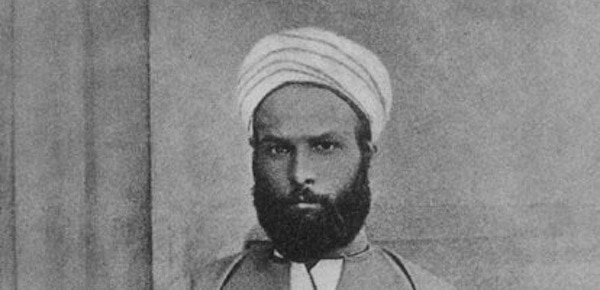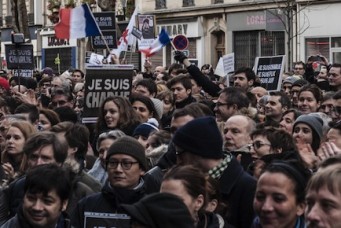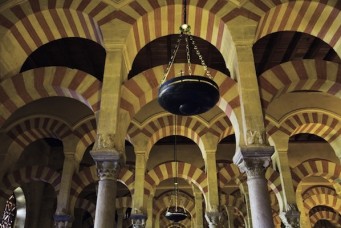How To Innovate Islamic Thinking
The solution is for religious institutions to widen their scope of research, limit their scope of social supervision, and open their doors.

Egyptian Mufti and Islamic reformer Mohamad Abdou (1849-1905). Wikimedia Commons.
Leading Saudi Islamic institutions condemned the attacks on the French satirical magazine Charlie Hebdo. The same week, the country’s religious authorities also charged the young blogger Raif Badawi with insulting Islam. Badawi was to be flogged a thousand times, delivered in batches of fifty every Friday, though the medieval punishment has been postponed following an international outcry. A week later, an Egyptian court sentenced a young man to three years in prison for slurs against one of the monotheistic religions.
Has the Islamic World regressed? In the 1930s, an Egyptian writer wrote a book called, Why I Am an Atheist. The response was not a fatwa against him, but rather a book titled Why I Am a Muslim, by an Islamic scholar. Political systems across the region were gradually moving from authoritarian monarchism toward plurality. Economies were slowly being industrialized. Creative artists were transforming Arab literature and music, and giving birth to Arab theatre and cinema. Across the region, there was a feeling of a historical rejuvenation. The Islamic world—North Africa, the Eastern Mediterranean, Turkey, and Iran—seemed to be experimenting with different ideas, perspectives, and value systems. Translations of Western political constitutions, essays, novels, and plays abounded. During the Arab liberal age, from the mid-nineteenth century to mid-twentieth century, the general exposure to the West created an open, daring, and increasingly tolerant intellectual milieu.
This openness and intellectual confidence was the result of decades of broad-minded Islamic thinking. At the turn of the twentieth century, Jamal Al-Deen Al-Afghani and Mohamed Abdou, by far the most prominent Islamic scholars of their age, reflected on Islam’s historical trajectory. Both noted that, for centuries, backward-looking social and tribal contexts were imposed on the “rational religion.” Abdou advanced new understandings of the religion; he saw compatibility between Islam and the waves of modernity that the Arab and Islamic world experienced at the time. The school of thought that he founded was arguably the first real innovation in Sunni Islamic thinking in over seven hundred years—since the twelfth century, when religious and political powers had closed the gates of independent and creative reasoning. In the following few decades, several famous writers, from Abbas Mahmoud Al-Akkad to Ahmed Ameen, explained that the “dawn of Islam” and “its genius” materialized when its civilization interacted with and absorbed aspects of other traditions, whether Persian or Hellenic.
In the last seven decades, the most notable voices seeking common ground between Islamic and modern frames of reference were not in the large Islamic institutions. Some were independent scholars, such as the Egyptian author Gamal Al-Banna; others were Muslim immigrants in the West, such as the Tunisian poet and professor who worked in France, Abdelwahab Meddeb. This was not only limited to Sunni Islamism. The most transformative thinker in Shia Islamism in the last half century, Abdelkarim Sorroush, worked outside the Shia establishments in Iran, Iraq, or Lebanon. Leaders in minority Islamic communities, for example in the United States and South Africa, also led new conversations, for example relating to women’s rights in Islam. The major Islamic universities and grand mosques were detached from the most interesting discussions and debates on religion’s place in modern society. The leading Islamic institutions continued to innovate, but in different areas. Significant thinkers that emerged in the last six or seven decades from the Arab world’s leading Islamic institutions have focused on theology, jurisprudence, and the application of Islamic rules in modern daily lives (for example Sheikh Al-Maraghi, Mohamed Shaltut, Abdelhalim Mahmoud, Mohamed Metwally Al-Sharaawy, and Yusuf al-Qaradawi). There were also new areas of research, for example Islamic finance. Creative rhetoric has emerged, primarily in modern Sufi schools. But none of these scholars has addressed the disconnect gradually separating traditional Islamic perceptions and modern thinking.
Again, this was hardly a Sunni phenomenon. The most prominent voices in Shia theological, and political, thinking in the last eight decades (from Ayatollah Haeri to Ayatollah Borujerdi to Ayatollah Al-Sistani) have built on old traditions, rather than offered novel understandings. The most notable innovator in modern Shia thinking, Ayatollah Ruhollah Khomeini, expounded upon an old concept in the Jafari school of Shia Islamism, “velayat e-fiqih” (the Guardianship of the Jurist), and developed it into a comprehensive social framework for Shia societies. In effect, this brought most public matters, from politics to economics to education to social manners under the direct control of a clerical system that has hardly changed since the sixteenth century (a period of significant effervescence in Twelver Shia Islam).
Throughout the twentieth century, the Islamic world has suffered from a lack of scientific progress, dismal economic growth, and extremely high illiteracy rates. Taken together, this has meant that large sections of Muslims hardly registered the changes that had taken place in the West regarding the role of religion in modern societies. Islamic institutions were not subjected to the social pressures for change that Western religious institutions had faced centuries before.
The result: the largest, richest, and most prominent Islamic institutions continue to inhabit an intellectual world that has not changed much in the last three hundred years. The Islamic world lost the momentum that thinkers such as Abdou, Al-Akkad and others had unleashed. Islamic thinking lost the link that those thinkers had established to earlier episodes in the Islamic civilization’s history, especially in the ninth and tenth centuries, when leading Muslim philosophers had advanced highly creative interpretations of Islam. Islamic institutions lost the drive to innovate in the areas that really mattered to the religion’s place in modern society.
Still, the last decade brought a transformative change. New technologies allow young generations in Islamic countries to see how the role and nature of religion had changed in various parts of the world. As Islamic institutions remain isolated in debates of jurisprudence, large sections of young Muslims are exploring new ideas about the nature of religion and its place in their lives—ideas that range from the contemplative and reformist to the radical and violent.
In fact, Islam has been the least managed religion in history, mostly because of its unique historical experience, but also because Sunni Islam (the faith of over 80 percent of today’s Muslims) lacks a hierarchical clergy. Traditionally, this gave it strength to confront social, political, and theological challenges. Today, it means Islam will evolve irrespective of the dominant thinking at its leading institutions. But that carries risks. The evolution will take place away from the centers that, for centuries, have been Islam’s reservoir of knowledge.
Young generations of Muslims, in and outside the Islamic world, will develop their own ideas about how religion fits into a rapidly changing world. Creativity will stir waters that have been stagnant for decades. But some of these ideas will be fanatic. We are likely to see another Mohamed Abdou. But, along the way, we will see many confused and acutely antagonized Muslims. Those, who are disturbed by apparent contradictions between the sacred and the secular, will cause mayhem in the name of the religion.
The more that religious institutions resort to top-down imposition of power and assertively proclaim their exclusive right to interpret the religion, the bigger the disconnect between their world and that of scores of young Muslims will be. The solution is for religious institutions to widen their scope of research, limit their scope of social supervision, and open their doors. Religious study should move beyond jurisprudence and the implementation of sharia in daily lives. The accumulated knowledge of centuries of research and teaching should affect reconciliation between Islam and modernity. Independent, creative reasoning should be welcomed and nurtured, not stifled.
Religious institutions should realize and acknowledge that Islamic thinking and rhetoric needs to open up to different cultures. Since the end of the Arab liberal age in the early 1950s, Islamic discourse has been shaped by highly conservative religious disciplines, primarily the strict Sunni sect of Wahhabism, which anchors the political legitimacy of the Saudi ruling family. Wahhabism has been by far the most generous funder of Islamic educational institutions across the world, and, for over a century now, has controlled Islam’s two holy mosques in Mecca and Medina. Wahhabism and various literalist Islamic disciplines have gained prominence in the Islamic and especially Arab world in the last half century. They are products of desert-based, homogenous cultures that lacked plurality and exposure to the world, that were not enriched by the Arab and Islamic world’s liberal age. Today, a majority of Muslims live in non-Arab countries whose cultural heritages, especially in the twentieth century, have been far from homogenous. Islamic thinking and rhetoric has to transcend the insularity that has characterized it in the last half century. It is time to explore the richness that these Islamic communities offer it.
Islamic institutions should invite voices from outside their academies and colleges. Bloggers, social entrepreneurs, and youth leaders are not experts on theology, but they are experts on how the hundreds of millions of young Muslims perceive their religion. Condescension and haughtiness will not work. Given the demographic, social, and technological changes the world is rapidly undergoing, Islamic institutions are facing one of the gravest challenges they have ever confronted. If they skirt the challenge, we will all pay the price in the form of a tsunami of confusion, anger, and fiery zeal.
Tarek Osman is the author of the international bestseller Egypt on the Brink.



